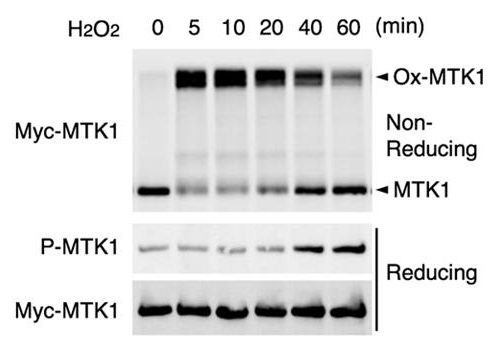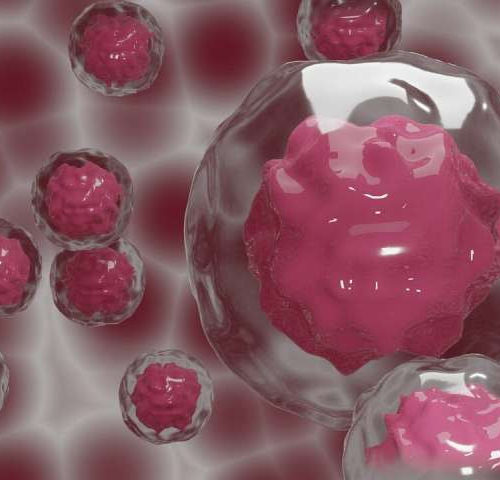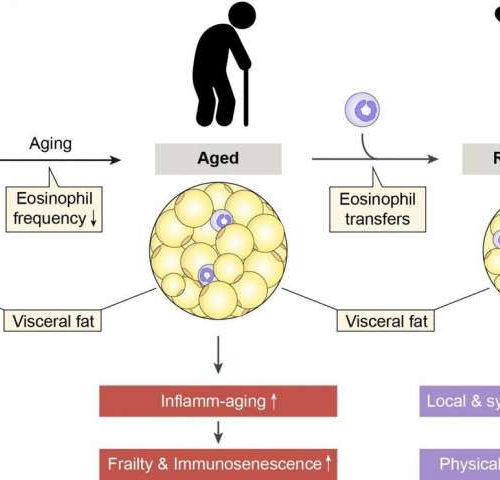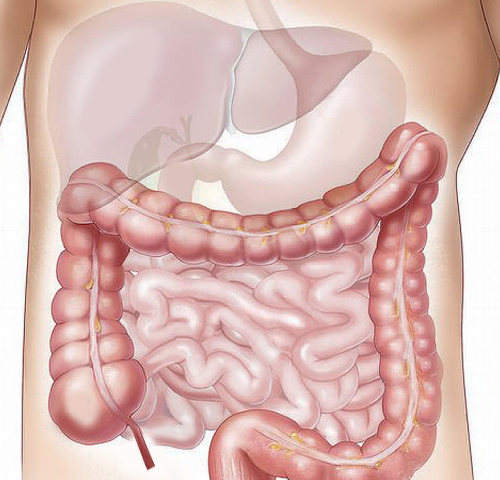UNIVERSITY OF VIRGINIA HEALTH SYSTEM MARK DEBOER, MD, OF UVA CHILDREN’S, DEVELOPED A CALCULATOR THAT CAN PREDICT THE RISK OF STROKE, DIABETES AND CORONARY ARTERY DISEASE. HE DEVELOPED THE CALCULATOR IN COLLABORATION WITH MATTHEW Doctors can predict patients’ risk for ischemic stroke based on the severity of their metabolic syndrome, a conglomeration of conditions that...
Tag: <span>metabolic</span>
Exercise Enhancement
Loss of a specific enzyme increases fat metabolism and exercise endurance in mice. Sugars and fats are the primary fuels that power every cell, tissue, and organ. For most cells, sugar is the energy source of choice, but when nutrients are scarce, such as during starvation or extreme exertion, cells will switch to breaking down...
Large study confirms vitamin D does not reduce risk of depression in adults
MASSACHUSETTS GENERAL HOSPITAL Boston – Vitamin D supplementation does not protect against depression in middle-age or older adulthood according results from one of the largest ever studies of its kind. This is a longstanding question that has likely encouraged some people to take the vitamin. In this study, however, “There was no significant benefit from...
Study challenges idea that lower BMI shields smokers from fat-associated health risks
by Vanderbilt University Medical Center Some smokers might rationalize continuing to smoke because of lower body weight often associated with the habit. However, Vanderbilt University Medical Center investigators have determined that even with a lower body mass index (BMI), smokers have a higher risk of depositing fat in and around organs and tissues compared to...
Identification of new “oxidative stress sensor” MTK1
Elucidation of the mechanism by which active oxygen induces cell death and inflammation THE INSTITUTE OF MEDICAL SCIENCE, THE UNIVERSITY OF TOKYO CELLS WERE TREATED WITH H2O2 FOR THE INDICATED TIMES. CELL EXTRACTS WERE ELECTROPHORESED UNDER NON-REDUCING CONDITIONS AND IMMUNOBLOTTED WITH AN ANTI-MYC ANTIBODY (TOP). IMMUNOPRECIPITATED MYC-MTK1 WAS ELECTROPHORESED UNDER REDUCING… view more CREDIT: ©TAKEKAWA...
Researchers track down metabolic enzyme that protects against inflammation
by La Jolla Institute for Immunology Scrape your knee, and you’ll see some red puffiness appear around the injury. This is inflammation, and it is driven by the immune system. Inflammation around a scrape is minor, but inflammation around joints—due to diseases like rheumatoid arthritis—can be incredibly painful. And inflammation in and around the blood...
Study points to potential new approach to treating glaucoma and Alzheimer’s disease
by Bill Snyder, Vanderbilt University Medical Center Researchers at Vanderbilt University Medical Center (VUMC) have shown for the first time that when one optic nerve in the eye is damaged, as in glaucoma, the opposite optic nerve comes to the rescue by sharing its metabolic energy. In doing so, however, the undamaged optic nerve becomes...
Researchers identify a cancer metabolic pathway that could be a valuable target for therapy
by Sonia Fernandez, University of California – Santa Barbara Fighting cancer often means employing a suite of techniques to target the tumor and prevent it from growing and spreading to other parts of the body. It’s no small feat—the American Cancer Society predicts roughly 1.8 million new cases of cancer in the country in 2020,...
Age-related impairments reversed in animal model
by University of Bern With age the frequency of adipose tissue eosinophils decreases gradually. This leads to the production of inflammatory mediators, which promote age-related impairments (e.g. frailty and immunosenescence). Eosinophil cell transfers increase the frequency of these cells in adipose tissue and dampen age-related chronic low-grade inflammation. This results in systemic rejuvenation of the...
The gut shields the liver from fructose-induced damage
by Perelman School of Medicine at the University of Pennsylvania After one consumes food or a beverage containing fructose, the gastrointestinal system, or gut, helps to shield the liver from damage by breaking down the sugar before it reaches the liver, according to a new multi-center study led by researchers in the Perelman School of...









